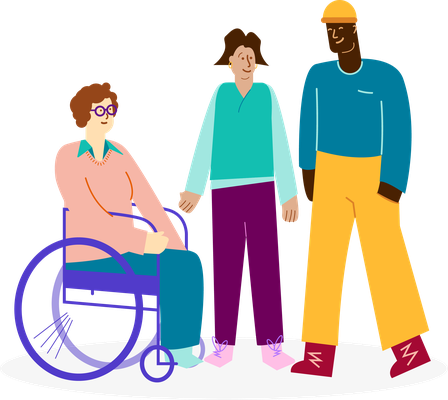An introduction to the framework
Who is this framework for?
- People who currently work in frontline roles within homelessness services
- Managers who are supporting their staff to develop within their role as a frontline worker
- People who are looking to work in the homelessness sector.
Why we have developed the skills framework
Currently, there is no formal learning pathway for people to develop their skills and knowledge in the homelessness sector, as well as no formal career development pathway. For those who are new to the sector, there is currently nowhere to find out what a career in homelessness looks like or an understanding of the skills, knowledge and behaviours needed to underpin effective delivery.
In response to this, and as part of our core grant from DLUHC, we have developed a new national homelessness skills framework, designed to be a key resource to support the learning and development of the homelessness workforce. The framework aims to create an understanding of the skills, knowledge and behaviours needed for a frontline role for current and prospective staff to help facilitate the recognition of transferable skills, knowledge and behaviours, for those new to the sector and support career development for those already working in the sector, so that skills can be passported between services, helping the sector to retain qualified, knowledgeable staff.
The objectives of the skills framework:
- To provide consistency, clarity and a professional benchmark of the knowledge, skills and behaviours needed for roles across the sector
- To recognise and celebrate the diverse skills that are essential for delivering successful services
- To be used as a practical tool to attract, retain and develop dedicated and skilled staff and volunteers across the sector
How it works
- Review the essential and additional knowledge, skills and behaviours and clarify at which level you would reasonably be. Consider where you have strengths across these areas and where you might need to develop.
- Find your role, the role which most closely aligns to yours, or the role you are interested in (if new to the sector).
- Use the framework and your own assessment of your strengths and areas for development to have a conversation with your manager about your career and how you would like to shape your own journey.
- Draft a plan to prioritise a few areas (knowledge, skills or behaviours, or a mix of all three) to focus on, being mindful not to overwhelm yourself.
Any questions?
For more information on the skills framework don’t hesitate to get in touch with Joanna Turner.
-

Joanna Turner
National Practice Development Project Manager
